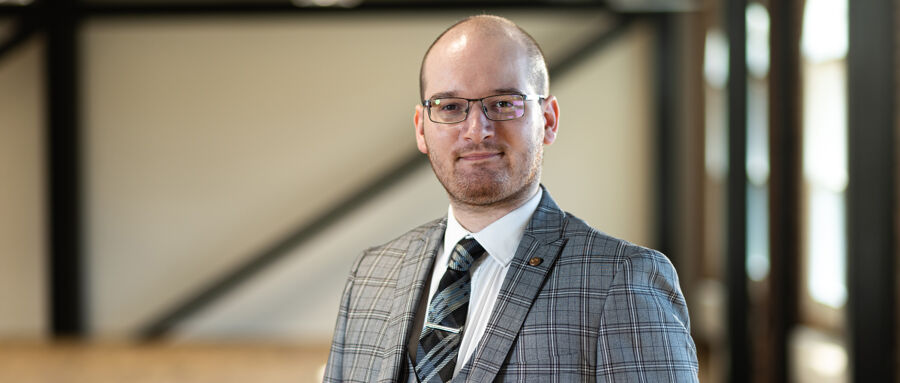
Tom Fair
Multiplatform and Mobile Journalism MA
Nostalgia writer at Birmingham Live, Tom Fair , decided BCU was the right place for him to do his postgraduate studies due to the standard of the media facilities and lecturers.
‘I discovered a love for radio production when I joined the student radio station during my undergraduate. I learnt a lot about broadcast journalism, which sparked my interest in news reporting. When it came to thinking about starting a postgraduate, I knew that going down the journalism route would be ideal. Since my postgraduate I have landed my dream job as a news writer in a subject area I am passionate about.
Just before finishing my major project in my postgraduate, I reached out to Birmingham Live as they were looking for a nostalgia and history writer. I was nervous at the prospect of getting a job straight away but thought I would apply as it was a perfect fit for me and what I had been studying. I started by covering stories across Birmingham, Lincolnshire and Cheshire and have since specialised in Birmingham reporting. I love working for a local news outlet because the reaction from my stories is so good. As a writer, it’s great to see that my work is having an impact on the readers, with them reminiscing on past times and recognising specific details in my writing.
After studying at De Montfort University Leicester, I wanted to get a further qualification, so I looked around at postgraduate options and found a course at Birmingham City University. I wanted to go to a different city to do my postgraduate as I wanted to have a clean break from the life I had made in my undergraduate, meet new people and have new facilities and knowledge to work amongst. I already recognised the Multiplatform and Mobile Journalism course leader, Paul Bradshaw, as he is a big name in the industry, so I knew this was the right place for me. Paul, Diane Kemp and Dharmesh Rajput all filled my postgraduate with irreplaceable knowledge and real-world experience examples. The tutors were always on hand, they would frequently email and check up on us to make sure we were all getting on ok. Although the lecturers were always happy to help, the biggest change from undergraduate to postgraduate is that you are less guided in your work, which I initially found a challenge.
Not only was I impressed with all the staff who were teaching on the course, I was equally impressed with the facilities. The first time that I went into one of the television studios, I was taken aback and immediately wanted to have a go with everything in there. When I started my masters, I ended up using all the facilities which was great. I learnt a lot in my undergraduate course, but my postgraduate accelerated my skills. Doing my postgraduate gave me the opportunity to really explore all avenues to decide what I liked best, whether it be short television documentaries or data journalism. I wanted to broaden my knowledge and practical skills, as in my undergraduate I only had the opportunity to dabble in different areas rather than get my teeth into specific types of journalism that really interested me. In the first couple of months at BCU, I really wanted to explore what my interests were so that I could then crack on with working in whichever area I wanted to focus on.
Doing a postgraduate wasn’t something I had thought about at first. I found that my career aspirations weren’t clear when I finished my undergraduate and then we went into lockdown, so I took that time out to do my masters in the hope that when the lockdown ended, I would be in a secure mindset for my future opportunities. Since doing my postgraduate, I feel more confident in my editorial decisions and have a more professional understanding of the industry.
One of the modules on my course was to go out and get work experience for a couple of weeks. This opened up the opportunity for me to work at Talk Radio in London where I worked on interviews for news bulletins and vox pops. This experience gave me the chance to work within the conferences where editors make big on-air decisions that impact the station output. This is the first time I had an insight into the work behind a radio station, especially on an editorial level. This work experience taught me loads of industry tips such as what information is really needed for a story, how to select the right person to interview, how many interviews has the person been in previously, lots of questions to ask yourself before conducting a strong interview, which I have taken with me into my personal career. I am grateful to BCU for being such a great support with this module, they taught us how to approach big companies and how to get the most out of work experience, which I put into practice.
‘I AM BCU’ means I have ambition and skill. It’s knowing that the tutors here were always willing to see you succeed and never wanted you to fail. Everyone here wants you to win.’